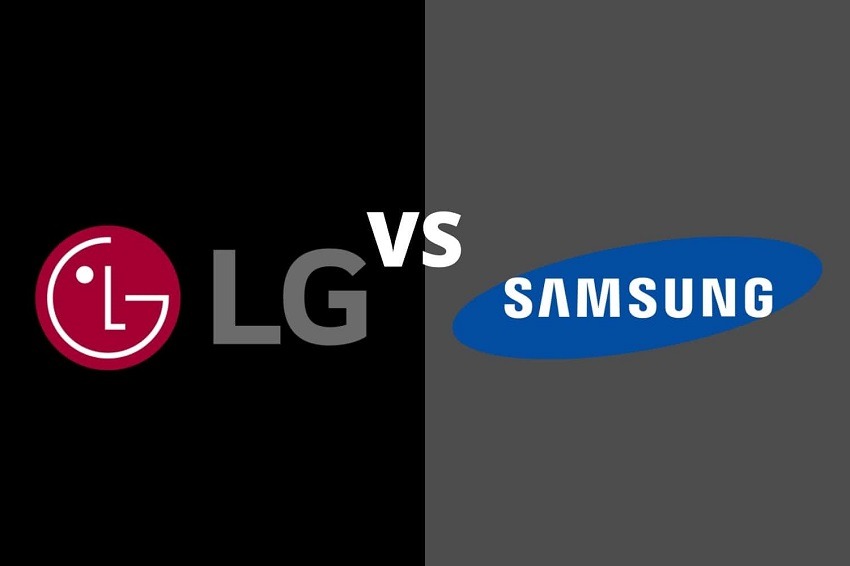When it comes to purchasing a new TV, the choices can be overwhelming. With so many brands and models available in the market, it’s important to carefully consider your options and choose a television that suits your needs and preferences. In this article, we will compare two popular TV brands, LG and Samsung, to help you make an informed decision. We’ll delve into various aspects such as picture quality, smart features, design, and customer satisfaction, providing you with the necessary information to determine which brand is better suited for you.
Picture Quality: LG vs. Samsung
Both LG and Samsung are renowned for their commitment to delivering excellent picture quality. LG employs OLED (Organic Light-Emitting Diode) technology in many of its high-end models, which offers deep blacks, vibrant colors, and wide viewing angles. OLED panels provide superior contrast and individually lit pixels, resulting in stunning picture clarity and immersive viewing experiences.
On the other hand, Samsung is known for its QLED (Quantum Dot LED) technology, which utilizes tiny quantum dots to enhance color reproduction and brightness levels. QLED panels offer exceptional color accuracy and brightness, making them ideal for well-lit rooms. Samsung also incorporates advanced upscaling and motion-handling technologies in their TVs, ensuring smooth and sharp visuals even with lower-resolution content.
Ultimately, the choice between LG’s OLED and Samsung’s QLED technology depends on your personal preferences and viewing conditions. Both brands offer exceptional picture quality, but LG’s OLED excels in dark room environments, while Samsung’s QLED performs well in brighter settings.
In the unfortunate event of having a broken TV, it’s important to explore appropriate solutions for repair or disposal. What to do with a broken tv is crucial to consider eco-friendly options and avoid simply discarding it. Instead, you can look for electronic recycling centers or municipal programs that accept broken TVs for proper recycling. This helps reduce electronic waste and its impact on the environment.
Smart Features and User Interface
In today’s digital age, smart features have become an integral part of modern televisions. LG and Samsung both offer robust smart platforms that provide access to a wide range of apps, streaming services, and online content. LG’s webOS and Samsung’s Tizen operating systems are known for their user-friendly interfaces, smooth navigation, and intuitive controls.
LG’s webOS is praised for its simplicity and ease of use. It offers a responsive user interface that allows seamless switching between apps and inputs. LG TVs also come equipped with the Magic Remote, which includes a pointer and voice control capabilities, making navigation a breeze.
Samsung’s Tizen, on the other hand, provides a visually appealing and customizable interface. The Smart Hub provides a unified hub for all your content, and the One Remote simplifies the control of multiple devices. Additionally, Samsung has integrated its TVs with voice assistants like Bixby and compatibility with other smart home devices.
The choice between LG’s webOS and Samsung’s Tizen boils down to personal preference. Both platforms offer a rich selection of apps and features, ensuring a satisfying smart TV experience.
Design and Aesthetics
In terms of design, LG and Samsung have distinct approaches that cater to different tastes. LG emphasizes sleek and minimalist designs that blend seamlessly with any decor. Their TVs often feature slim profiles, minimal bezels, and elegant stands or wall-mount options. LG’s attention to detail extends to cable management systems, ensuring a clutter-free setup.
Samsung, on the other hand, offers a diverse range of designs to suit various preferences. From ultra-thin models to TVs with unique stands and bezel-less displays, Samsung aims to create visually stunning TVs that enhance the overall aesthetics of your living space.
The choice of design ultimately depends on your personal style and the overall ambiance of the room where the TV will be placed. Whether you prefer a minimalist or a more eye-catching design, both LG and Samsung offer options to meet your requirements.
Customer Satisfaction and Reliability
Customer satisfaction and reliability are crucial factors to consider when investing in a TV. LG and Samsung have established themselves as reputable brands known for producing high-quality products.
LG has received positive feedback from customers, particularly regarding the performance of their OLED panels. The brand is also recognized for its prompt customer service and support. LG TVs often come with extended warranties, providing peace of mind to consumers.
Samsung has built a strong reputation for reliability and innovation. Their TVs are known for their longevity and durability. Samsung also offers excellent customer support and has an extensive network of service centers, ensuring timely assistance when needed.
To get a more comprehensive understanding of customer satisfaction, it’s advisable to explore user reviews and ratings specific to the models you are considering. This can help you gauge real-world experiences and make an informed decision.
Conclusion
Both LG and Samsung are prominent brands that offer exceptional televisions with unique features and advantages. LG’s OLED technology provides superior picture quality, especially in dark room environments, while Samsung’s QLED panels excel in brighter settings. LG’s webOS and Samsung’s Tizen platforms deliver intuitive and feature-rich smart experiences, catering to different user preferences. Design-wise, LG focuses on minimalist aesthetics, while Samsung offers diverse and visually appealing options. Both brands have a strong reputation for customer satisfaction and reliability.
Ultimately, the choice between LG and Samsung depends on your individual needs, preferences, and the specific models available in the market at the time of purchase. Consider factors such as picture quality, smart features, design, and customer feedback to determine which brand aligns better with your requirements. With careful research and consideration, you can find the perfect TV that will bring entertainment and enjoyment to your home for years to come.







